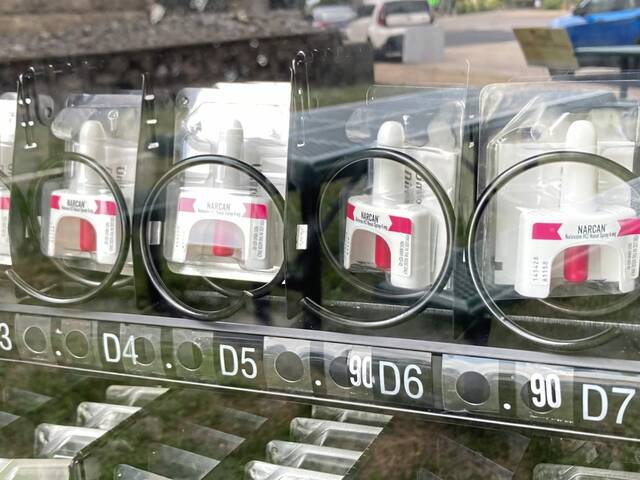In 1999, the opioid addiction epidemic began.
That was around the time when school districts and police departments began to have meetings with parents and residents about the dangers.
In the ensuing 25 years, the addiction problem has continued. Much like the trajectory of addicts’ journeys, the main players on the opioid stage have changed over time.
Legally obtained prescription drugs are often the on-ramp, but the illegally obtained are a brisk secondary market. Then there is heroin. In recent years, the bogeyman has been fentanyl, a more potent and often less regulated opioid that is legally used for crippling cancer pain and illegally used as a cheap way to stretch more costly drugs.
Whatever the vector, the addictive cravings remain the same.
What changes are the deaths. The National Institute on Drug Abuse showed drug overdose deaths balloon from under 20,000 in 1999 to almost 108,000 in 2022.
Overdoses aren’t listed on the Centers for Disease Control and Prevention’s leading causes of death, but that’s because they hide in other categories like accidents or suicide, depending on a coroner’s assessment. But if they were considered as just one group, that 2022 tally would stick them at eighth place — right between Alzheimer’s disease and diabetes.
In recent years, there have been downturns in overdose deaths. In Allegheny County, there was a 4% drop in 2023. In 2022, there were 689 deaths; in 2023, it was 665. In Westmoreland County, it was a 20% decline, going from 118 deaths to 95.
Not all of them are opioid related. Other drugs claim lives, too. But opioids are a driving percentage.
Available treatment for opioid overdose is a factor in deaths declining, too. Naloxone has been increasingly made available to counter fatality. Overdoses still happen and happen too often. But an overdose doesn’t have to be a death sentence if treated quickly and with the right medication.
That is why the Allegheny County Health Department is installing free naloxone vending machines in seven locations around the county. So far, there are machines at Tree of Life Open Bible Church in Brookline, Jade Wellness in Pittsburgh’s South Side Flats and Mon Yough Community Services in McKeesport. More locations are being set up.
The machines are paid for through CDC grant funding. The naloxone is provided to users without cost.
The vending machines are not a cure. When it comes to addiction, they aren’t even a treatment.
But when it comes to overdose deaths, naloxone is a life preserver. If Allegheny County can save 4% more lives this year than it did last year, the vending machines are like a fire escape in a high rise or an automatic external defibrillator prominently available in a school.
It isn’t a guarantee, but it’s definitely worth the effort.








